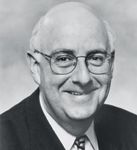- General Dermatology
- Eczema
- Chronic Hand Eczema
- Alopecia
- Aesthetics
- Vitiligo
- COVID-19
- Actinic Keratosis
- Precision Medicine and Biologics
- Rare Disease
- Wound Care
- Rosacea
- Psoriasis
- Psoriatic Arthritis
- Atopic Dermatitis
- Melasma
- NP and PA
- Skin Cancer
- Hidradenitis Suppurativa
- Drug Watch
- Pigmentary Disorders
- Acne
- Pediatric Dermatology
- Practice Management
- Prurigo Nodularis
Article
Practicing retirement
No matter how much the environment of medical care becomes infused with a bottom-line mentality, treating patients is a privilege, not a job. Medicine is a sacred calling, not something doctors do, but who we are.

"I feel funny asking this question," she said, "but do you have any plans for retirement?"
My neck muscles released their painful spasm, grateful that the issue at hand was not an angry patient or another managed care group gone bankrupt.
I laughed. "My wife won't let me quit and just hang around the house. I've arranged to die in my office - sometime past my 90th birthday and, hopefully, after a full day of seeing patients."
The secret "What's your secret?" she asked. "A lot of doctors are so unhappy with their lives and their practices that they play the lottery - seriously hoping to hit it big and retire."
"The secret," I said, "is while you're in practice to live like you're retired and if you have to retire, behave like you're still in practice."
Nobody can work at a youthful pace forever. And who would want a 90-year-old surgeon operating on them? But even if some things are best left to younger colleagues, it isn't necessary to leave the heart of our medical practices.
Lester Coleman, an ear, nose and throat (ENT) surgeon who practiced in Manhattan, is 95 years old. During his long and distinguished career, he treated many of Broadway's famous. He authored numerous books and wrote a widely syndicated newspaper column for patients. After a series of illnesses left him with diminished hearing and vision, he closed his office and gave up his column. But he didn't stop practicing medicine. Lester has always been a physician who, more than just treating patients' ears, lent them his own, spending time listening to and assuaging their fears. And that is what he still does.
Lester visits nursing home patients, listening to both their medical problems and their frustrations with the current medical system. His work was so appreciated that the city of New York recognized him with a special award.
Lou Rubin is a dermatologist I have known since my residency. Lou had a huge, extremely busy practice but took significant amounts of time from his office to travel with his wife and be with his family. I was aware of how often he was away because, as a senior resident, I used my vacation days to work at his office as a locum tenens. He also found time to pursue his love of tennis. Even 30 years my senior, his knees thickly wrapped in elastic bandages, he wipes me off the court in abject humiliation. Lou retired from his practice and lives in Florida. Although his health has not been the best, he spends one day a week working in a local clinic.
A privilege No matter how much the environment of medical care becomes infused with a bottom-line mentality, treating patients is a privilege, not a job. Medicine is a sacred calling, not something doctors do, but who we are. And even if age forces us to cut back our schedules, these two men demonstrate that there are always opportunities to serve patients.
Some doctors look forward to retirement because they're dissatisfied with their present career situations. They complain that they don't have enough time to do what they want in their personal lives; that they're slaves to their practices and their patients.





